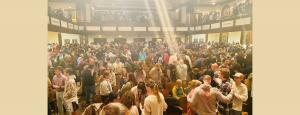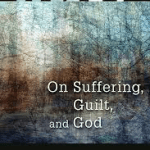The Way We Were: Part 2
Reading readers’ comments (hardly any questions) here bemuses me. I wrote about the way we American evangelical Christians were in the 1950s and 1960s. By-and-large I find today’s American evangelical Christianity so different as to be almost a different religion. Things that were major to us such as Bible memorization (to choose just one) are no longer emphasized (except by fundamentalists) and things that were anathema to us such as going to Las Vegas to gamble and “see the shows” are now accepted as matters of conscience.
Worship is by-and-large radically different as is preaching as is witnessing as is emphasis on missions. I could go on and on.
Here I want to bring in a side note. One thing that is obvious to me from many “sides” and sources is that outsiders to that evangelical Christianity simply do not understand it and probably can’t. Just as I can’t understand Eastern Orthodoxy or Amish religion, no matter how hard I try (and believe me I have worked hard at that and understanding many other religious forms of life). And I try hard not to judge them because I cannot understand them.
I’m sure most of you here have never heard of Peter Winch. If you want to increase your knowledge of sociology, including sociology of religion, I urge you to at least read about him.
Peter Winch was a sociologist influenced by philosopher Ludwig Wittgenstein. He argued that an outsider can never understand a form of life he or she does not participate in. In order to understand it, you have to participate in it. In the background, if not the foreground, of Winch’s sociology was Wittgenstein’s account of “language games.” But he probably went further than W ever went.
My experience of studying religions and especially Christian forms of life convinces me that Winch was almost right. Well, he may have been absolutely right if “understand” means fully. But I do think it really helps to get to know people who participate in a particular form of life personally and be in and among them—before claiming to understand them.
What’s my point? When I write here about “the way we were” and read the responses I often feel like it would be impossible to explain it to someone who wasn’t part of it, who didn’t participate in it. Often people who read or hear about it focus exclusively on the legalism of it. Yes, it was more legalistic than hardly any Christian group is now (setting aside Amish and fundamentalist Baptist). But when I remember back to it, I know that the legalism, although I chafed against it at times, protected me from many pitfalls that could have ruined my life. But even more important than the legalism, some of which was silly, I remember the feeling of joy and excitement and of belonging to something special. We sang, we prayed, we talked about Jesus and what he was doing in our lives, we testified, we had revivals, people’s lives were changed for the better, we experienced God in ways that shaped us with love, we had a strong sense of community, we stood out as different from the secular and pagan culture growing more so around us.
I understand that you who didn’t experience that can’t appreciate it; from the outside it looks (sounds) like something very negative, painful, harsh. I get that. It is even remembered that way by some who also grew up in it.
My story is that, for years after I left that “way we were” I wandered almost like in a wilderness in a different religious form of life. What shall I call it? Lukewarm Christianity? Culturally accommodated Christianity? Christianity that kept slip, sliding away from its roots into being just like the world, either far to the right or far to the left, hardly different from secular social movements? Either “woke” or “reactionary?” For the most part, nobody talking about Jesus. Nobody telling what Jesus has done for them. A form of Christianity but lacking the power thereof. Of course I found exceptions to that, points of light, real, authentic, living Christianity. But always the hovering “cloud” of “let’s be realistic” and “let’s be respectable”—not said so much as acted out.
I came to a point where I knew I couldn’t go back to being 1950s or even 1960s style American evangelical Christian; that form of life had almost completely died out. Laugh if you want to, but I found a kind of refuge in watching and listening to Gaither Homecoming videos and even attended some Homecoming “concerts.” I got to know Bill Gaither; we shared some wonderful times of fellowship. But the churches I attended, with one or two exceptions, seriously disappointing in terms of standing out as unembarassedly (I made up that adverb) Christian.
So, as soon as I could, I sought out and joined an evangelical Mennonite church that comes as close as I can find to the form of life I remember as a child and teenager in 1950s and 1960s evangelical Christianity. I’m sure there are other congregations that still embody that ethos. But my point here is, don’t knock it unless you have experienced it. What do I mean by “it?” Really distinct, stand-out, unembarrassed Christianity that permeates all of life in real community centered around Jesus Christ and the gospel.
*Note: If you choose to comment, make sure your comment is relatively brief (no more than 100 words), on topic, addressed to me, civil and respectful (not hostile or argumentative) and devoid of pictures or links. Also, again, know that the purpose of this blog is to provide a safe place for evangelical Christians to discuss evangelical Christianity and for others to ask questions better to understand evangelical Christianity.*













